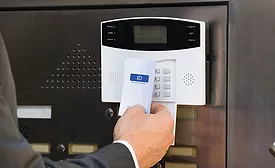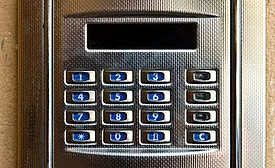Home » smart cards
Articles Tagged with ''smart cards''
Smart Card Uses Continue to Expand Across Sectors
Healthcare, higher ed, critical infrastructure and the corporate world embrace ID cards for security and more.
May 1, 2017
Future-Proofing with Smart Card Investments
The buzz around the Vanderbilt University Medical Center was that proximity cards were the next step in hospital security and data protection
June 1, 2014
Smart Card Solutions to 8 Security Headaches
Keep your head out of the technology razzle-dazzle – focus on furthering your enterprise’s business needs.
September 1, 2013
Sign-up to receive top management & result-driven techniques in the industry.
Join over 20,000+ industry leaders who receive our premium content.
SIGN UP TODAY!Copyright ©2026. All Rights Reserved BNP Media.
Design, CMS, Hosting & Web Development :: ePublishing



